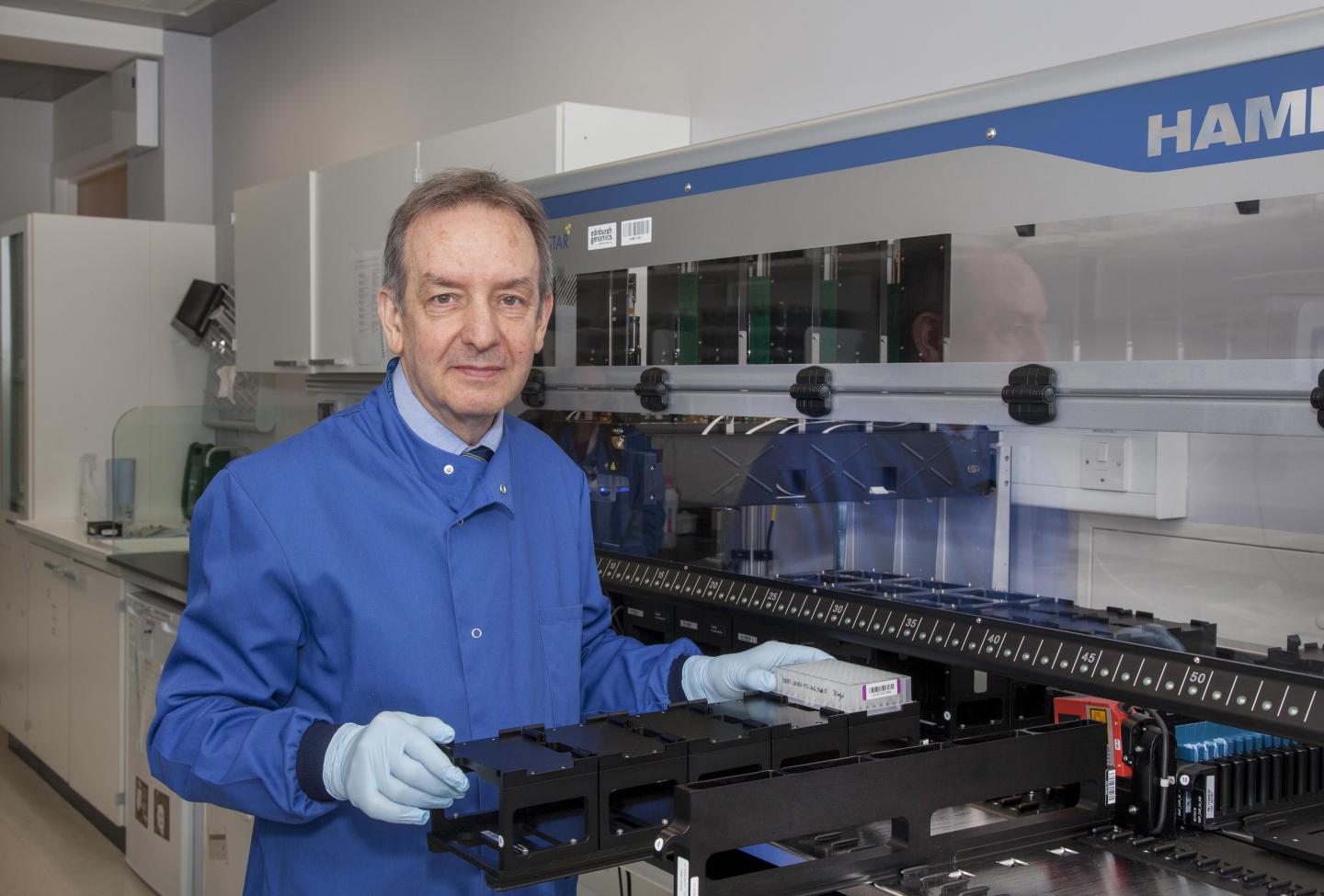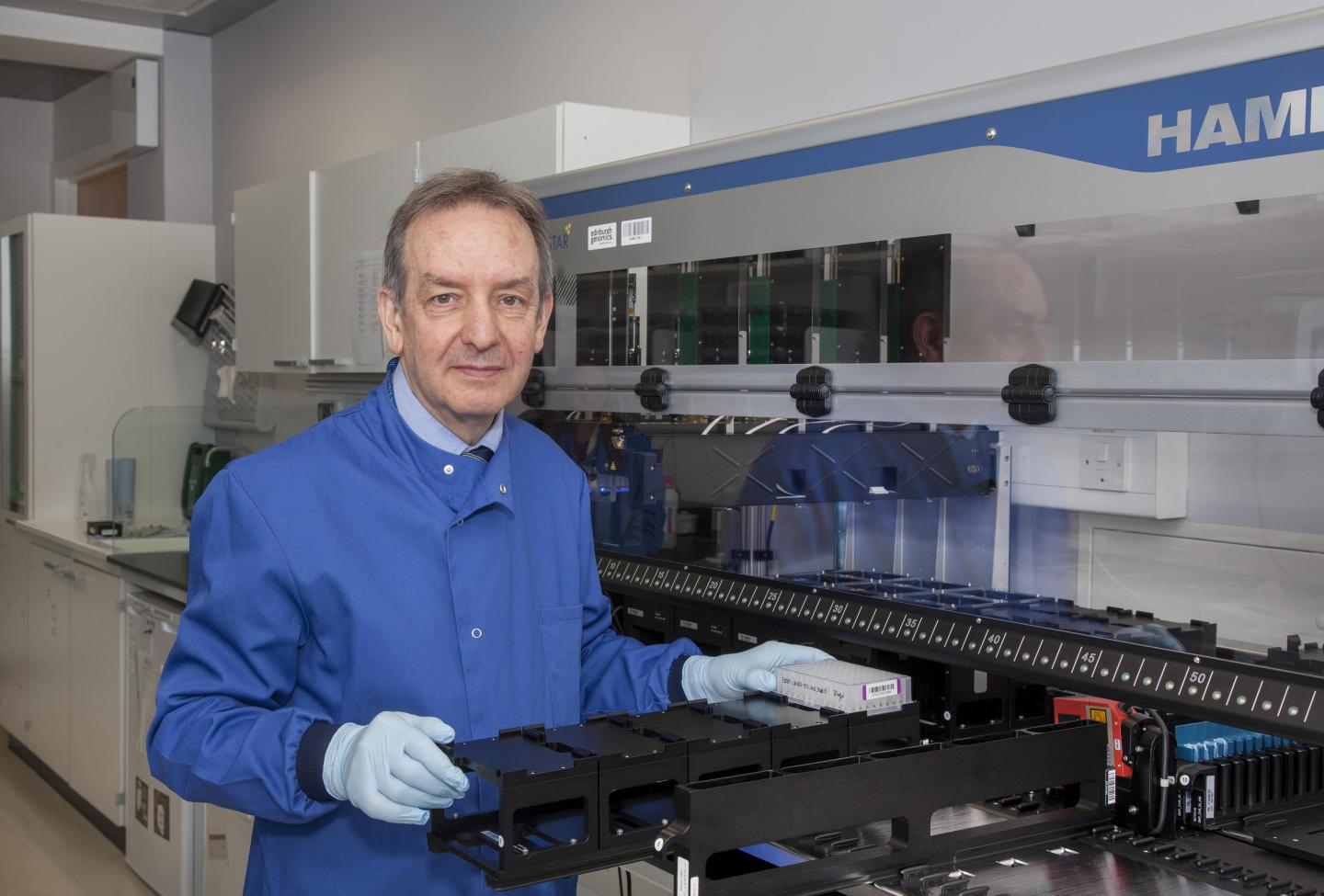
Credit: University of Edinburgh
More than one thousand people have had their entire genetic make-up decoded as part of a long-term study to gain insight into why some people's brains age better than others.
Scientists in Edinburgh have sequenced the DNA of more than 1300 people taking part in a decades-long study into ageing and memory.
The development will enable in-depth analysis of the genetic make-up of those taking part, and may help to identify the genetic basis of why some people's brains age better than others.
The Lothian Birth Cohorts comprise two groups of people born in 1921 and 1936, who were tested on their mental abilities at age 11, originally as a way of informing education policy.
Over the past 15 years, members of the cohort have been regularly tested by researchers at the University of Edinburgh's Centre for Cognitive Ageing and Cognitive Epidemiology (CCACE). Their follow-up mental examinations, blood tests and brain scans have yielded a trove of valuable information on mental and physical ageing.
Now, researchers have decoded the entire genetic make-ups of those taking part. By linking this genetic information with the cognitive testing carried out over the past 15 years, researchers hope to shed new light on the factors underlying healthy ageing.
When participants were first recruited to the Lothian Birth Cohorts, each person's genome would have cost US$100 million to sequence. Today, the cost of sequencing a person's genome is around US$1000 (about £700).
The genetic sequencing was conducted at Edinburgh Genomics at the University of Edinburgh, one of the largest sequencing facilities in the UK. It was funded by the Biotechnology and Biological Sciences Research Council (BBSRC).
The Lothian Birth Cohorts are funded by Age UK and the Medical Research Council.
Professor Ian Deary, the Director of the CCACE, said "This genetic data will prove invaluable for understanding why some people's brains and thinking skills age better than others. The flip side of having such comprehensive genetic data is that we will also understand better how the environment and lifestyle choices can contribute to healthy ageing."
The study was made possible by a major investment in gene sequencing technology by the Universities of Edinburgh and Glasgow to form the Scottish Genomes Partnership.
Joel Fearnley, Edinburgh Genomics Chief Operating Officer, said: "This pioneering work has been made possible by our highly skilled team and the Scottish Genomes Partnership's investment in equipment that enables rapid sequencing and delivery of high quality data at a viable cost."
Professor David Hume, Director of the University's Roslin Institute, which houses the gene sequencing facility, said: "This achievement builds upon many years of BBSRC support for genomic research in Roslin, through the ARK Genomics National Capacity Grant. Aside from the opportunities to gain new insights in human genetics, the work opens the door to similar large-scale initiatives in other species.
Professor Tim Aitman, Co-Chair of the Scottish Genome Partnership and Director of the University's Centre for Genomic and Experimental Medicine, said: "We are delighted with the quality and volume of data coming out of the Edinburgh Genomics facility. This tremendous rate of genetic sequencing is a testament to an incredible team effort which will accelerate our work towards radically improving disease diagnosis and management of patients in the Scottish NHS."
###
Media Contact
Jen Middleton
[email protected]
44-779-564-0662
@edinunimedia
http://www.ed.ac.uk





